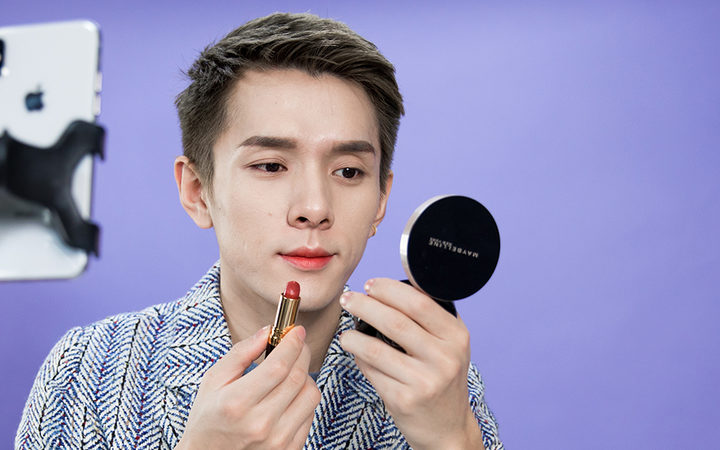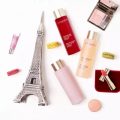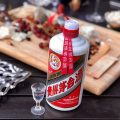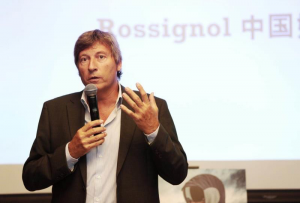The rise of cosmetics for men is particularly marked in Asia. But for Western brands seeking to find a place in this new market, the game will not be easily won.
Early September, Chanel launched its first makeup line for guys in South Korea. Dubbed ‘Boy de Chanel’, the three-product range will be introduced in November to the rest of the world, including China. The marketing teams’ expectations must be even more greater by the fact that Chanel cosmetics sales in China rose last year at a pace not seen in five years, according to Bain & Company.
« 4 out of 10 men are already paying attention to cosmetics », says Zhang Minyi, deputy director of social media ads at Tencent group, interviewed by 36kr news site. The article states in its introduction that « for more and more consumers, cosmetics are not just about appearance, but a way of expressing themselves and highlighting a lifestyle. »
State resistance
The study conducted by Tencent based on data collected on its WeChat and QQ platforms predicts that by 2019, the growth rate of make-up products for men will reach 13.5%. Foundations and perfumes are currently men’s favorite products. « Men under 26 are more interested in whitening and moisturizing products, while men over 26 are starting to focus on anti-aging properties », says Zhang Minyi.
This underlying trend has not emerged without provoking conservative reactions. In an editorial entitled « The sissy pants vogue must stop », the state news agency Xinhua castigates « some films, television programs, online platforms and reality shows. » By staging effeminate men and androgynous idols, they « deliberately appeal to audiences’ vulgar tastes. »
The Xinhua editorial concludes by saying that as long as men are behaving in this way, China will never become the strong and prosperous country it hopes to be. Interestingly enough, far from abounding in this direction, People’s Daily, another powerful state media, published a rebuttal denouncing this derogative perception. « A man’s strength should be judged on the basis of his inner qualities – not his physical appearance,” the article reads.
Regional preferences
The Tencent study points out that young people born after 1995, influenced by Internet stars and beauty bloggers (such as Li Jiaqi, pictured above, Photo credit : AFP) have become a target not to be overlooked. « Unlike the generation born in the 70s and 80s, they were very early exposed to Japanese and Korean cultures. They had access to more information on trends and brands », the study continues.
European brands are not particularly favored by this young generation who prefer brands culturally and geographically closer to them. « Less expensive, Japanese and Korean brands also benefit from the aura surrounding manga and Korean TV series », says the study. State resistance and regional preferences: the battle promises to be very tough on the men’s cosmetics market, even for the Chanel war machine.





